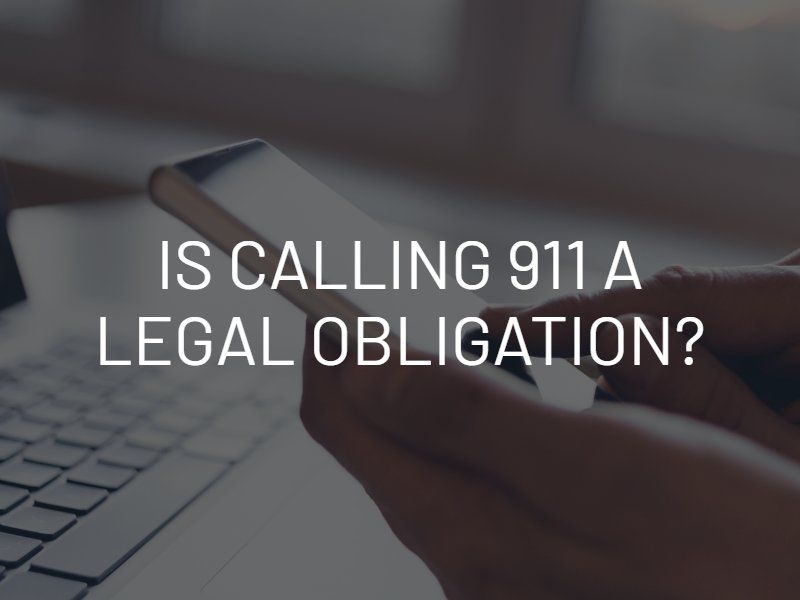Calling 911 may or may not be part of someone’s lawful civic duty, depending on the situation. Although the average person does not bear a legal duty to be a good Samaritan and help, certain medical providers and others may have this duty. If someone failed to call 911 while you were experiencing an emergency, that person may or may not be liable for your subsequent damages. Find out whether you can sue during a free consultation with a West Virginia personal injury lawyer near you.
Duty to Help or Rescue
The average person generally does not bear the duty to help, assist, or rescue someone in need. Although the law encourages bystanders to help whenever possible, it is not a legal duty unless that person has an obligation to the victim. If, for example, the Samaritan is a physician and you were his or her patient, the physician would have a legal obligation to help you. If you do not have any such relationship, however, there is no related duty to call 911 or otherwise render aid.
West Virginia’s Good Samaritan Law protects individuals who render emergency care at the scene of accidents in good faith. The law states that these individuals will not be liable for any civil damages that arise from rendering or failing to render such emergency care. In other words, if an individual fails to call 911 with the good faith belief that it was not necessary to help you, that individual would not be liable for resulting damages. If, however, the same individual negligently did not call 911, he or she may be liable.
Liability for failing to call 911 depends on the relationship between you and the individual. If the individual is responsible for your injuries, the individual could be liable for failing to call 911. The same is true if the individual started undertaking a rescue, then stopped when it was unreasonable to stop. If you two had a special relationship at the time of the incident, it may create a duty to call 911. Special relationships may include parents and children, teachers and students, and employers and employees.
When Is Failure to Call 911 Negligence?
Failing to call 911 may qualify as negligence if the caller had a duty to render emergency care to you. Even if the caller is not the person who caused your injuries, he or she may share liability for damages if failing to call 911 constituted a breach of duty. Should you file a personal injury claim against someone for failing to call 911, the courts would examine the relationship between you two, any duties of care one may have owed the other, and whether not calling 911 qualified as a breach of duty.
You need the following four elements to file a lawsuit against someone for failing to call 911: duty, breach of duty, causation, and damages. You would need to prove the individual you are filing against owed a duty to call 911, negligently failed to do so, and that this breach caused your damages. You would also need proof that the failure to call 911 worsened your injuries. If the failure did not affect the injuries or recovery time, you may not have a case against the individual for failure to call.
Understanding when someone can and cannot bring a personal injury claim against someone else for failing to call 911 in an emergency can be difficult. Consult an attorney to explore your legal rights in more detail. A lawyer can evaluate your situation, look at the relationship between you and the person who did not make the call, and let you know if your case has merit. If so, your lawyer can take over the claims filing process and fight for fair compensation on your behalf.
